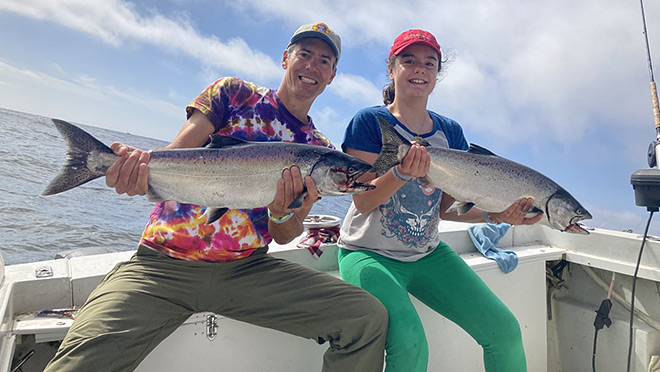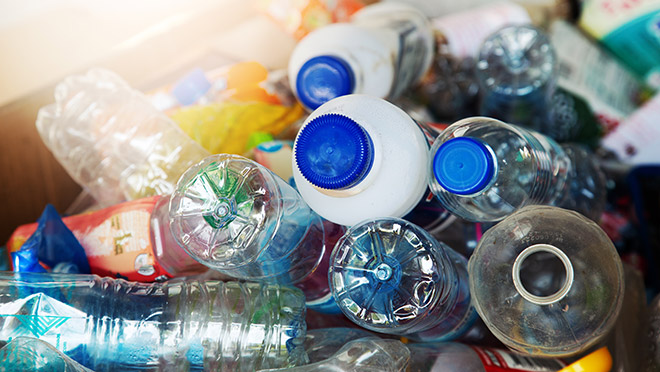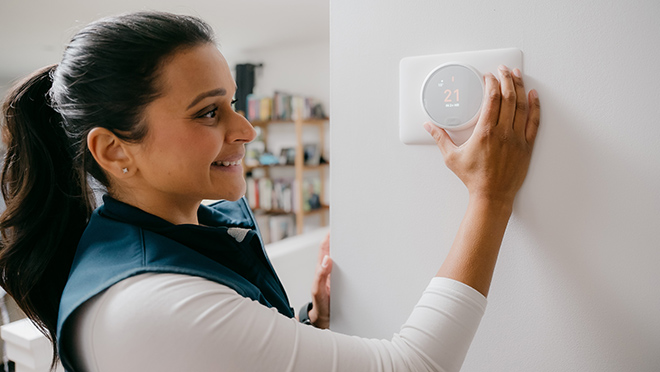Victoria 'Dead Head' a big Team Power Smart fan

Grateful Dead manager/archivist loves the 10% Reduction Challenge
Be kind to people, and be kind to the planet.
That, according to Victoria's David Lemieux, is a big part of what it means to be a Dead Head, a diehard superfan of the legendary band the Grateful Dead. And it's a big reason why he joined Team Power Smart six years ago and began taking the 10% Reduction Challenge.
The miracle? He has delivered on either the 10% Reduction Challenge or the Maintenance Challenge every year but one. And every one of the $50 or $25 reward amounts go to his daughter Kyla, now 13.
"It's a great motivation for her, and she know it's the right thing for the planet," says Lemieux, who is the Grateful Dead's official archivist and its legacy manager. "She also knows that come January every year, she's getting $50 [or $25], and you know that was a really nice thing for an 8- or 9-year-old, which was her age when we started this. And now at 13, it's still a real nice thing to get."
If you're a Dead Head, you'll almost certainly know who David Lemieux is. He's the host of the daily Today in Grateful Dead History show on Sirius XM's The Grateful Dead Channel, and has been the Dead's archivist since taking over the job after original archivist Dick Latvala died in 1999. "I saw exactly 100 Grateful Dead shows between 1987 and 1993," he says.
Not a Team Power Smart member? Join today, then start a 10% Reduction Challenge.
Not a Dead Head? Well, you've still got plenty to learn from Lemieux.
Tips from a Reduction Challenge expert
When you expect to hit your Reduction Challenge every year, you get inventive. Here are a few things Lemieux and daughter Kayla have done to reduce electricity use:
- Monitor your usage on MyHydro. "I'm hyper in-tune with my energy use through bchydro.com," he says. "If I see a spike in electricity use yesterday, I look into why that happened."
- Take care with the oven. "I used to preheat my oven like, an hour ahead of time, if I was baking something. I really don't have to do that – it only takes 15 or 20 minutes to heat up."
- The cat doesn't need to listen to the radio. "I used to leave my radio on when I left home so that the cat could listen to the CBC. I think my cat loves the CBC, but it's my dad's old radio, and it probably uses a lot of electricity."
- Hang clothes to dry, and wash them in cold water. "I learned five years ago that you don't have to use hot or warm water to get your clothes clean."
- Take shorter showers. "You can take a six-minute shower, or four minutes or three, and you're just as clean."
- Turn off the dishwasher heat-dry setting. "You can run your dishwasher overnight, and wake up and have it all dry."
And now, a fossil fuels confession
It can be easier to reduce your electricity consumption year over year in an electrically-heated home, as heating can account for 60% or more of BC Hydro bills in the winter months. Turning the thermostat down, wearing sweaters and slippers, etc., can be a fast track to delivering on the 10% Reduction target.
We asked Lemieux what sort of heat he has in his 2,400-square-foot Victoria home. Electric baseboards?
"I have something else," he says, sheepishly, hesitating before adding. "I have a gas furnace."
He's certainly not alone in heating his home with natural gas. But still, he's an eco-conscious guy who drives a Volkswagen E-Golf electric car and makes a lot of other green moves.
"When it comes time to replace the furnace, I'm definitely getting an electric heat pump," he says. "But for now I'll let the furnace run its course for another little while."
Combined BC Hydro, federal, and provincial rebates of up to $11,000 are available for switching from fossil fuel heat to an electric heat pump, which also offers cooling in the summer. Lemieux could also use BC Hydro's heat pump cost calculator to get an estimate of what a switch to a heat pump could save him in energy costs.
A switch to a heat pump would also cut Lemieux's annual household carbon emissions by two tonnes or more. He has already taken a step towards reducing his emissions with his electric vehicle, and because he doesn't drive much – and also uses public charging – it hasn't impacted his electricity bills much.
"Right now, my car's battery is down to about 30 km, so I'll probably charge it at home today," he says. "That will cost me only about $2, and working from home, that will last me 10 or 12 days. That's maybe $8 a month, as opposed to my friends with gas cars who are paying anywhere from $80 to $200 a month for gas."
Rolling blackouts in California, and the path to Team Power Smart
Lemieux, 52, declares that he's "a hippie at heart" whose initial adventures in eco-friendliness were in recycling everything he could. But it took living in California in the early 2000s to make him more aware of electricity use.
"There were even rolling blackouts when I lived there in the early 2000s," he says. "That made you realize, oh boy, this is why we all have to kind of save on our electricity and make sure that there's enough for everyone."
When Lemieux's furnace was struggling one winter, he needed to use portable electric heaters, and that led to a dramatic increase in his electricity use. Ironically, that also made it pretty easy to get his $50 Challenge reward the following year. Without the portable heaters, he was able to reduce his yearly consumption by at least 10% from the previous year. Even this year, he hit his target, and Kyla is awaiting payment.
"We just finished the challenge – we always finish right around January 16 or 17, and so, within a week or two I'll have that $50 direct deposited to my BC Hydro bill," he says. "And I'll take $50 out of my account and give it to Kyla."
Not surprisingly, she's also a Grateful Dead fan, complete with an eco-conscious approach to life.
"She likes the music, and she also she loves her planet," he says. "We spend a lot of time out in Canadian national parks and canoeing and fishing and going to Tofino and places like that. We like cities, but we definitely like the world around us. She knows the respect we have to have for those places."


